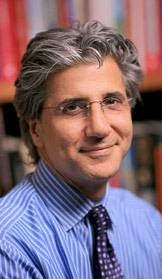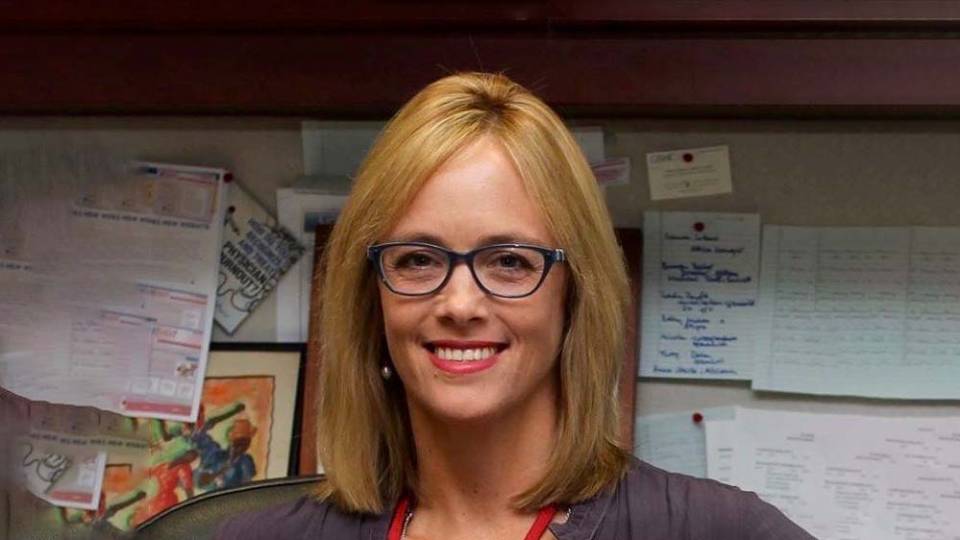John Kolligian, director of Counseling and Psychological Services in University Health Services (UHS) since 2004, has been named executive director of UHS, effective Feb. 2.
"UHS stands at a critical juncture in the University's history, and John was selected because the search committee believes he is uniquely prepared to lead this organization," said Janet Dickerson, vice president for campus life, to whom Kolligian will report. "The demand from our students for mental health services has never been greater. John is nationally regarded in matters relating to adolescent and young adult mental health, which is a major priority and concern for us."
Princeton, like other colleges and universities, is dealing with more students with mental health problems, reflected in an increasing number having taken psychiatric medication before they come to campus as well as by higher rates of depression in this age group.
"What a privilege it has been to direct our Counseling and Psychological Services, and I'm deeply honored by this opportunity to deepen my involvement in advancing our campus community's health and well-being," Kolligian said. "I've witnessed firsthand the role that psychological health can play in supporting Princeton's distinctive learning experience. Also, I appreciate the deep connections between physical and mental health."
He will succeed Danny Silverman, who resigned in 2007. Janet Finnie, chief operating officer of UHS, has been serving as interim executive director.
"I am grateful to Janet Finnie for serving as interim executive director during the lengthy search," Dickerson said. "She has been an excellent manager and a tenacious advocate for UHS. It is very clear that she is committed to our staff and our students, and I thank her for her steadfast leadership while looking forward to her continued contributions to a truly wonderful and high-performing team."
Kolligian added, "UHS is composed of an extraordinary group of professionals who, I believe, have no equal in combining clinical excellence with compassionate care. It is a special place where thoughtful collaboration is the norm, innovation almost routine. We have momentum, a rich agenda and much promise for prioritizing health as a central value in the years ahead. I look forward to working closely with our many campus partners in enhancing the quality of life of our campus community."
Dickerson credited Kolligian with developing "excellent relationships with his own staff and with others in UHS and on campus, in the local community and in the region."
"He has connected with 20 peer institutions through leadership, with Janet [Finnie], of Princeton's participation in the National College Depression Partnership, which aims to improve the mental health of students by focusing on early detection, coordinated, proactive patient follow-up and better adherence to outcomes-based treatment," she said.
Kolligian's achievements at UHS include reorganizing the Counseling and Psychological Services staff to significantly increase student access to mental health care and reduce the average wait time. He has introduced a modified urgent care system that provides rapid clinical response for pressing or emergent psychological situations. And, in collaboration with the Office of the Dean of Undergraduate Students, he has established an interdisciplinary case conferencing system to coordinate and enhance the University's support of students experiencing personal difficulty.
Dickerson also stated that Kolligian "has demonstrated a willingness to engage deeply with clinical issues and research as well as to prepare for a leadership role" in both his study and his professional career.
Before coming to Princeton, Kolligian was director of Georgetown University's Counseling and Psychiatric Service in 2003-04. Prior to that, he spent nine years as a senior psychologist and director of psychology training at Columbia University Health Services.
Kolligian also served as program director and assistant professor of psychiatry at Yale University, where he received his Ph.D. in clinical and developmental psychology, and maintained a private psychotherapy practice in New York and Washington, D.C. He holds a bachelor's degree in psychology from Stanford University, a master's degree in education and child study from Tufts University and a master of business administration degree from Columbia.
UHS is a fully accredited health care facility providing comprehensive health services to Princeton undergraduate and graduate students and their dependents, employee health services, and a variety of wellness programs and services for members of the University community. Located in the McCosh Health Center, UHS provides services to 84 percent of all undergraduate and graduate students in a given year. UHS clinicians are available 24 hours a day, seven days a week during the academic year, and handle about 60,000 clinical encounters annually.

